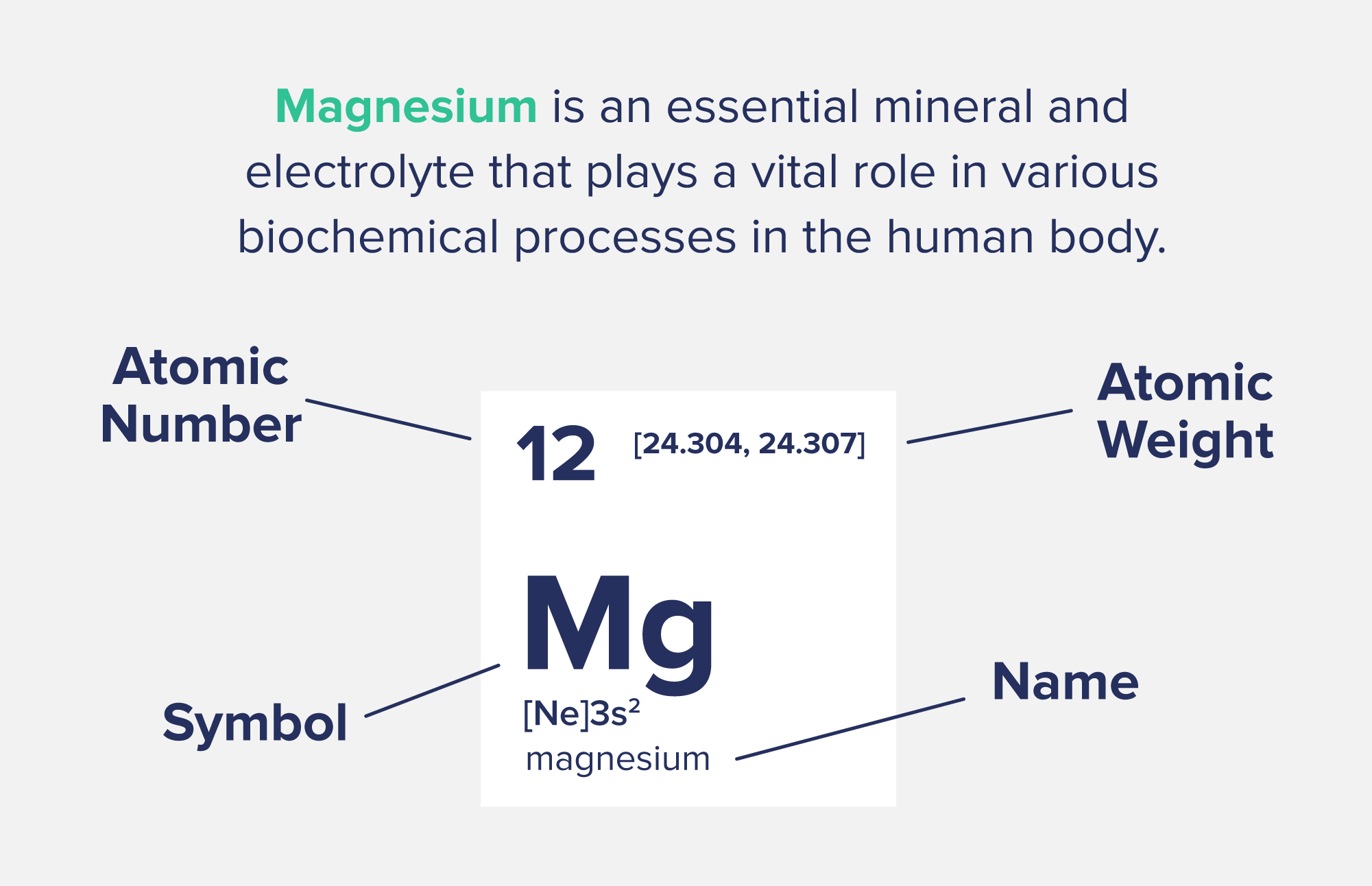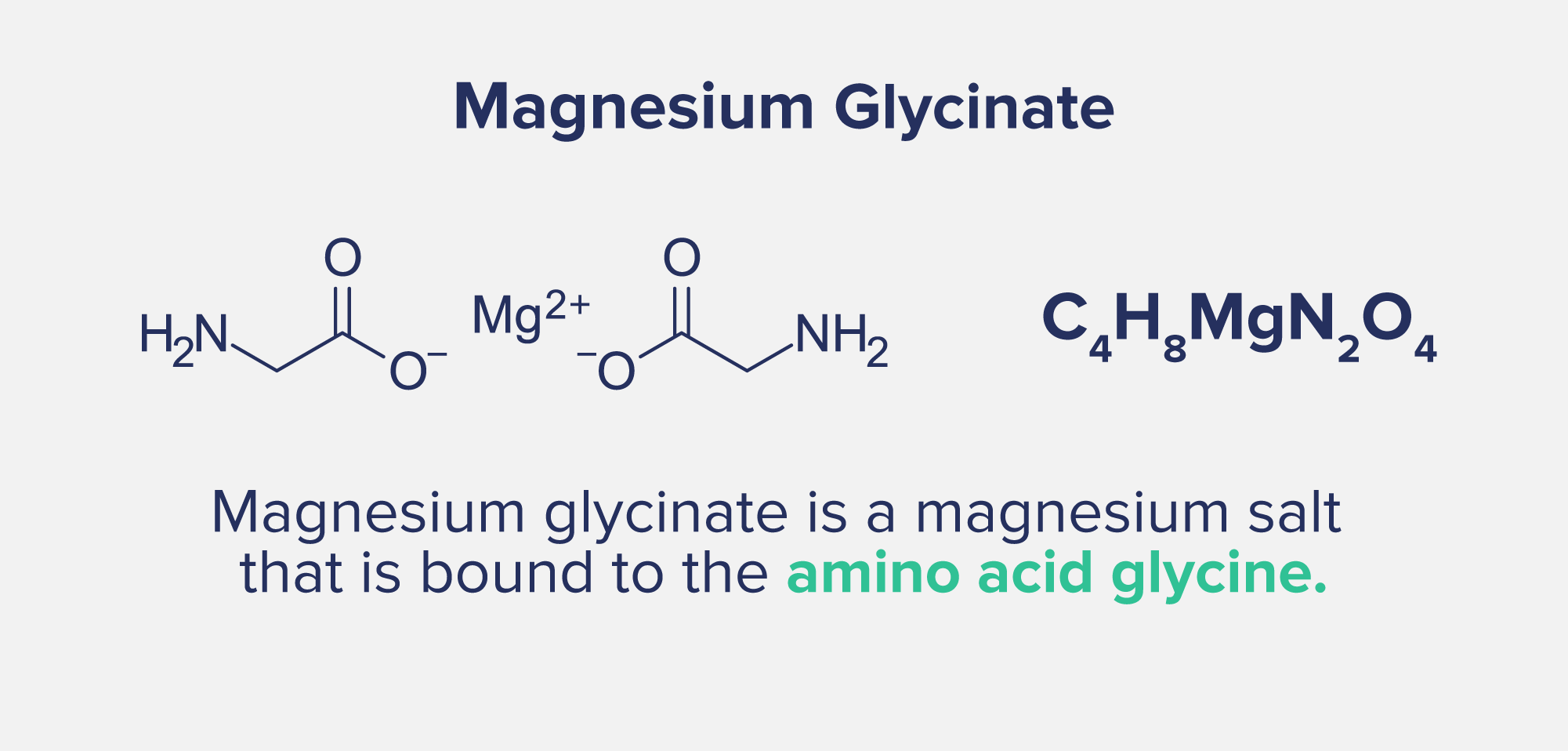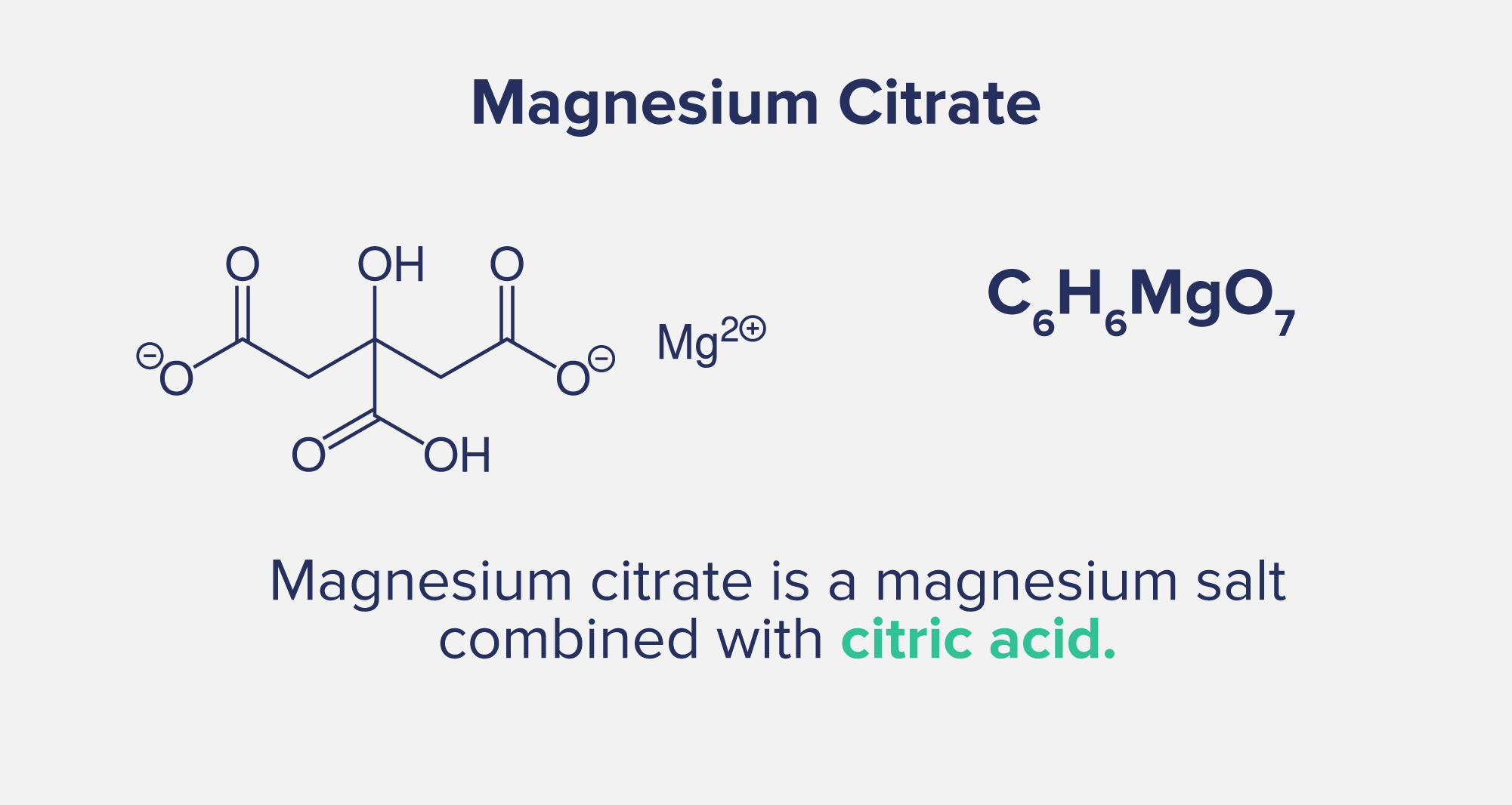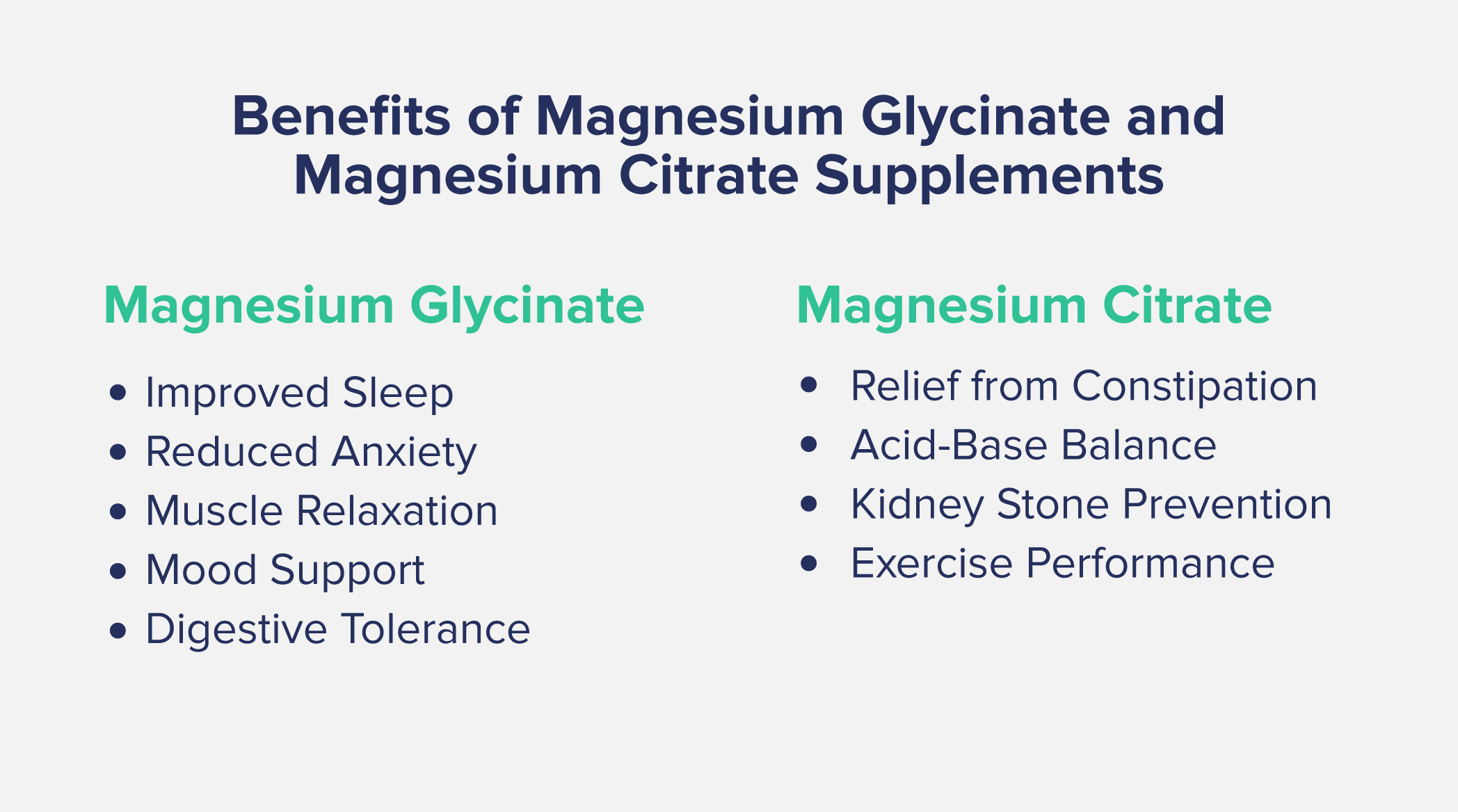Talk to a Registered Dietitian and use INSIDER20 for 20% off!
Talk to a real Dietitian for only $99: Schedule Now
This post contains links through which we may earn a small commission should you make a purchase from a brand. This in no way affects our ability to objectively critique the products and brands we review.
Evidence Based Research To fulfill our commitment to bringing our audience accurate and insightful content, our expert writers and medical reviewers rely on carefully curated research.
Read Our Editorial Policy
Like a pay-per-view event for chemistry nerds, magnesium glycinate vs citrate is the ultimate showdown. Does one reign supreme? Will this be a one-sided slugfest or a worthy battle of the magnesium’s?
In this showdown between these two forms of this hard-working mineral, we will cover:
Once you understand the unique advantages of each preparation, you can diet and shop in confidence as you more accurately address your unique nutritional gaps, lifestyle, and more.
Magnesium is the fourth most abundant mineral in the human body. It plays many important roles, like regulating muscle and nerve function, blood sugar levels, and supporting bone health.
But wait… there’s more!
Magnesium is involved in more than 300 different enzyme activities that help to regulate diverse biochemical reactions in our human body. Sounds pretty important to me!

Since humans can’t produce magnesium on their own, many people don’t get enough of it from their diet alone, so magnesium supplements help to bridge potential dietary gaps.
The two most popular magnesium supplements are magnesium glycinate and citrate. Are you wondering what the difference is or which one is the best choice for you? We’re answering all your questions below.

Magnesium glycinate is a chelated form of the mineral, meaning the magnesium is bound to the amino acid glycine, which ensures that a significant amount of magnesium gets absorbed into the body (a term often referred to as “bioavailability” in scientific literature).
Glycine has calming effects on the body due to the glycinate component. It helps to alleviate the symptoms of anxiety, stress, muscle tension, and restlessness.
It can also help to soothe PMS symptoms like cramps and mood swings.
Magnesium glycinate also has minimal laxative symptoms, and is usually tolerated well at low doses. People with gastrointestinal sensitivity might find this a good choice to keep things moving along.

Magnesium citrate gets its name from its source, citric acid, which is found in various citrus fruits. The combo of the two makes for improved absorption over other options.
It also has the ability to pull water into the intestines, so it’s commonly used as a saline laxative for occasional constipation (yeah, we went there).
If you suffer from migraines, magnesium citrate may be worth a try in terms of relieving the pain. It relaxes the blood vessels in your brain and could provide relief for those painful migraines.
Magnesium citrate can also bind to the calcium in urine, reducing the risk of kidney stone formation. A low magnesium intake could reduce the urinary magnesium concentration, hampering the preventive effect of magnesium on stone formation.
While magnesium supplements are common and readily available, magnesium can be found in lots of everyday foods. The daily recommended dietary allowance for men is 400-420 mg and 310-320 mg for women.
Green leafy vegetables like spinach and kale are also high on the list of sources of magnesium. Whole grains, avocado, and fatty fish like salmon will help you significantly boost your daily intake. Just be mindful to try and eat whole foods as much as possible since magnesium can be lost during refinement and processing.
Want a more extensive list of magnesium-rich foods? Here ya go!
It’s important to recognize the signs of a deficiency with this essential mineral since it can have a significant impact on your overall health. With over 50% of people being deficient, it’s important to keep an eye on your magnesium levels.
Magnesium deficiency can show up in muscle function symptoms such as cramps, spasms, fatigue, and weakness affecting overall energy levels.
On a more technical (and potentially serious) note, this article from St. Thomas’ Hospital in London states magnesium deficiency can dramatically decrease the levels of calcium (hypocalcemia) and potassium (hypokalemia) in the blood, and is associated with several chronic diseases including diabetes, hypertension, heart disease, and more.
Due to its role in regulating the heart’s electrical impulses, some individuals may experience irregular heartbeat, also known as arrhythmia, in the case of magnesium deficiency.
Researchers have clearly outlined the pitfalls of magnesium deficiency (increased risk of coronary vascular disease, or CVD) and the CVD-preventing benefits of higher levels of circulating magnesium, as this academic review from the Pere Virgili Institute for Health Research in Spain describes.
Some mood disorders like anxiety and depression can be linked to magnesium deficiencies because magnesium influences neurotransmitter (chemical messenger in the brain) balance.
Mood disorders are often highly complex and situationally nuanced, often requiring more than neurotransmitter rebalancing to remedy, but especially if the person is already deficient in magnesium, restoring magnesium levels may be helpful both in addressing mood disorder symptoms and other issues outlined in this section.
Prolonged magnesium deficiency increases the risk of osteoporosis and weakens bone structure.
Several large-scale studies, especially of postmenopausal women, have consistently elucidated the role of magnesium in increasing bone mineral density.
This cohort study of more than 73,000 postmenopausal women from Ohio State University, for example, found that “baseline hip BMD [bone mineral density] was 3% higher, and whole-body BMD was 2% higher, in women who consumed >422.5 compared with <206.5 mg Mg/d.”
It’s important to note that the effect did not decrease the incidence of hip and other bone fractures, but the bone density increase is well-solidified (get it?) with such a large sample size.
While magnesium is thought to be generally safe, there are some side effects to be aware of.
When taking too high a dose of magnesium, some people experience diarrhea, nausea, or abdominal cramping. This is more common with magnesium citrate due to its laxative effect.
Excessive magnesium intake can lead to low blood pressure which may result in dizziness, fainting or lightheadedness.
Combining magnesium with certain medications could potentially affect their absorption and effectiveness. Make sure to consult with your doctor before adding magnesium supplements to your daily routine.
Due to the calming effects of glycine, this option is generally better for anxiety, sleep, and muscle relaxation. Magnesium citrate is preferred when constipation relief is the main goal (yup, still going there).

Nope. The effects on the body are different between these two.
Glycinate enhances calm and sleep due to its bond with the amino acid glycine which has a calming effect on your body.
Magnesium citrate pulls water into the intestines to stimulate bowel movements as a laxative.
One potential downside of magnesium glycinate is an upset stomach if taken in high doses. Another downside is possible interaction with medications like blood pressure pills or antibiotics, so make sure to check with your doctor first.
Individuals with impaired kidney function or kidney disease should avoid magnesium glycinate, since the kidneys eliminate excess amounts of the compound.
Magnesium glycinate is preferred for sleep and anxiety, as it can calm your nervous system and muscles without the laxative effect of citrate. The glycine enhances its relaxing properties.
While there is no clear winner in the battle of magnesium glycinate vs citrate, it just really depends on what you are taking it for.
If you want a calming effect, and to possibly improve your sleep quality, then magnesium glycinate will be your best bet. If you’re looking for constipation relief, then magnesium citrate is going to be your contender.
Either way, this essential mineral is vital in the pursuit of wellness and good health.